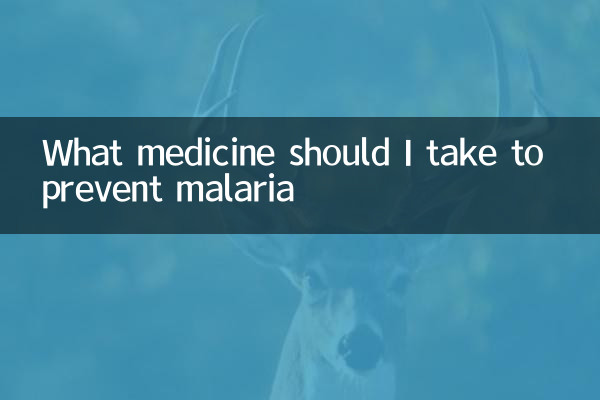What medicine should I take to prevent malaria? Hot Topics and Structured Guide to the Network in the past 10 Days
Recently, malaria prevention and control has once again become the focus of public attention. As mosquito activity increases in summer, disease control departments in many places have issued warning warnings. This article will combine the hot contents of the entire network for you in the past 10 daysDrug selection, medication precautions and authoritative data for preventing malaria, help you protect scientifically.
1. Hot topics related to malaria in the last 10 days on the entire network

According to social media and news platform data, the following topics are the most discussed:
| Hot Topics | Discussion volume (10,000) | Main focus |
|---|---|---|
| Malaria infection cases for migrant workers in Africa | 12.5 | Prevention and control of imported malaria from abroad |
| Research progress on artemisinin resistance | 8.2 | Drug effectiveness |
| The Centers for Disease Control and Prevention Summer Mosquito Control Guide | 6.7 | Non-pharmaceutical preventive measures |
| Results of clinical trials of malaria vaccines | 5.3 | Long-term prevention measures |
2. List of common drugs for preventing malaria
The World Health Organization (WHO) recommends the following drugs for preventive malaria use (requires doctor's guidance):
| Drug name | Applicable groups | Usage Dosage | Things to note |
|---|---|---|---|
| Doxycycline | Adults and children over 8 years old | 100mg per day, start taking 1-2 days before departure | May cause photosensitivity reaction |
| atovaquinone/proguanide (Malarone) | Adults and children (≥5kg) | 1 tablet per day, start taking 1-2 days before departure | Need to be taken with food |
| Mefluquine | Adults and children (≥5kg) | Take once a week, 2 weeks before departure | Use with mental illness with caution |
| Chloroquine | Only for sensitive areas | 300mg per week (basic dose) | Drug resistance has appeared in many places |
3. Precautions for medication use
1.Regional differences: Different malaria endemic areas have different resistance, so the drug needs to be selected according to the destination (such as atovaquinone/proguanidine is the first choice in Africa).
2.Time period: Preventive medications must cover the entire exposure period and continue to take them for 4 weeks after the end (except for mefloquine).
3.Taboo people: Pregnant women and patients with liver and renal insufficiency need to have personalized evaluation and avoid the use of doxycycline or mefloquine.
4. Non-drug preventive measures (recent hot discussions)
| measure | Effectiveness | Implementation Suggestions |
|---|---|---|
| Mosquito net treatment (insecticide soaking) | Reduce infection rate by 60% | WHO recommends long-term mosquito nets |
| DeET (DEET) mosquito repellent | Protection time is 4-8 hours | Concentration is 20%-50% |
| Clear water storage container | Reduce mosquito breeding sites | Community joint action is more effective |
5. Latest expert reminder
The "Technical Guidelines for Malaria Prevention and Control" released by the Chinese Center for Disease Control and Prevention in June emphasized:Drug prevention cannot replace physical mosquito prevention measuresEspecially for travelers to Southeast Asia, Africa and other regions, they should adopt the triple protection of "drugs + mosquito nets + mosquito repellent".
If you need a personalized medication plan, be sure to consult an infectious disease doctor or travel to a medical clinic to avoid risks caused by purchasing medication by yourself.
(Note: The data in this article are comprehensively integrated with WHO, the Chinese Center for Disease Control and Prevention and scientific research literature published in the past 10 days, and updated to June 2023.)

check the details

check the details